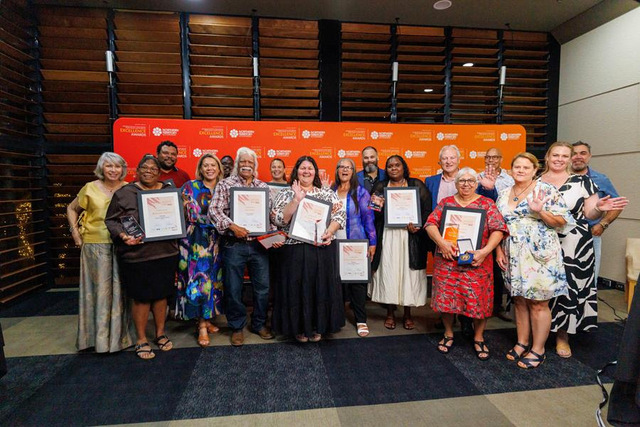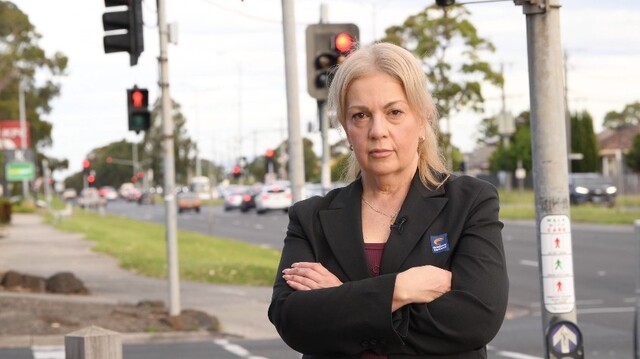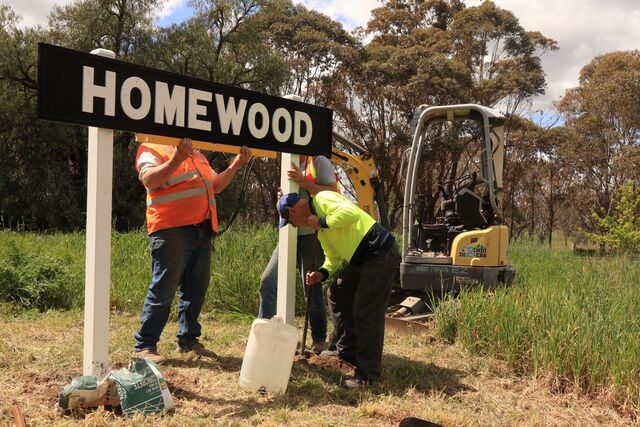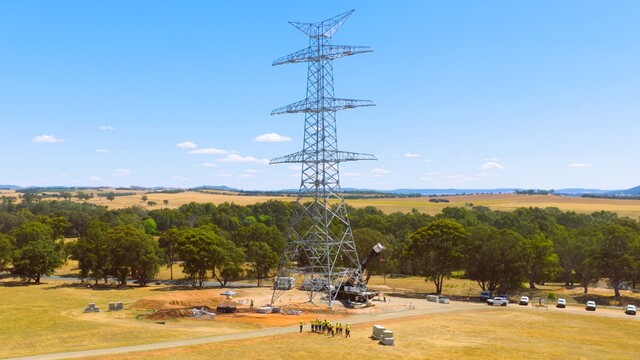Dear Local Government Focus,
On October 11th Victorian women councillors and officers were thanked for their service to the community at a lunch at State Parliament.
About 50 attended the celebration lunch, organised by the Australian Local Government Women’s Association (ALGWA), marking the end of the Council term.
We were delighted that members of Parliament from all parties attended to express their gratitude and appreciation.
Among the speakers was Victorian Minister for Local Government, the Hon. Jeanette Powell, Minister for Women’s Affairs, the Hon. Mary Wooldridge, the Shadow Minister for Women, Danielle Green and the Greens spokesperson for Women, Colleen Hartland.
Minister Powell, a life member of ALGWA, told the audience that 656 women had nominated in the Victorian elections.
She added that in the Victorian election there was a woman standing for election to all 78 councils going to election – an increase of 39 women from the 2008 election – and almost 80 percent of wards had at least one woman nominated.
The Minister atributed the increase in the number of women candidates to the vigorous campaign by the Victorian Coalition Government and the local government sector to attract more women candidates to council elections.
She thanked those who were not re-standing and wished them well in their future endeavours.
And she said: “Having more women in leadership roles results in more inclusive cultures and better decisions – after all, women make up more than half of Victoria’s population”.
I would also like to thank all councillors and officers for their contribution over the past Council term and express my appreciation to the ALGWA executive for their hard work.
Whilst there has not been a dramatic increase in the number of women candidates in the election, I believe a seed has been sown and a number of women will contest future elections.
ALGWA has branches in all States and the Northern Territory. It holds a networking breakfast at the annual ALGA conference.
Coral Ross,
President, ALGWA (Vic.)
Editor’s note: at latest count, the total percentage of women elected to councils in Victoria has risen from 29 percent in 2008 to nearly 34 percent in 2012; a great result for ALGWA (Vic.) and for women in local government in general.
Dear Local Government Focus,
In early 2011, following the Victorian State Elections, the City of Greater Geelong was singled out to be the subject of legislative changes to introduce a directly elected Mayor. This was a direct result of intense lobbying by two local influential business groups, one local media outlet, and local Liberal party members plus a pre-election commitment made by the then Ballieu Opposition.
Local Government Victoria (DPCD) issued a ‘discussion paper’ and residents, ratepayers and stakeholders were ‘invited’ to make submissions using an electronic template that ‘guided’ responses to specific questions. However, apart from this, no prior opinions had been sought nor had any resident been consulted on such a change. The only other Victorian Council with a directly elected Mayor is the City of Melbourne and the MAV noted that, “no research on the benefits and disbenefits that have accrued to the community and business appears to have been undertaken to date”.
Obviously, any such research or investigation would have provided valid data to the Ballieu Government prior to a proposal to introduce the direct election of the Mayor or a Mayoral Team in Greater Geelong.
Out of 65 submissions received less than half were in favour of the Directly Elected Mayor/Deputy Mayor. Of the individual submissions received (55), it was noted that the majority opposed any change to the current system. General consensus was “this is a sham — if it isn’t broken, why fix it?”.
The Geelong Council, the Ocean Grove Community Association, local branches of two political parties (ALP & Greens), Municipal Association of Victoria, Victorian Local Governance Association, Proportional Representation Society of Australia, and the CoRBA (Coalition of Resident & Business Associations) Melbourne were firmly of the view that the consultation process was flawed because it lacked any community consultation or input on whether citizens actually wanted a directly elected Mayor; and, secondly, people needed to be given a valid opportunity to express an opinion about the state of play.
Here is a quote from one of the submissions: ”the DPCD Paper assumes that the direct election of the Mayor or Mayoral Team for the City of Greater Geelong will be introduced (my emphasis) and consequently does not provide any substantive underlying rationale for this.”
The MAV stated that it: “Does not support the direct election of the Mayoral Team. The Mayoral Team would inevitably be elected on the basis of an election platform or ‘vision for the City’. It must be recognised that any ‘vision’ as such could be quite inconsistent with the actual needs of the diverse geography and communities of the City of Greater Geelong.”
There was a paucity of information regarding additional costs (election/implementation) to the community and municipality, or what the impact on democracy and governance might be.
Concerns were expressed that a popular, wealthy person with no previous commitment to public life/public office would be encouraged to ‘run’ no matter their suitability.
The Elections were held across Victoria on October 27. In the interests of good governance and democracy, a publicly conducted forensic audit of the VEC’s City of Greater Geelong election process is mandatory.
We shall await the outcome of what has been coined – ‘a social experiment’, and the associated costs.
Sincerely,
Barbara Abley AM CGSJ FRCNA
Newly retired former Mayor & three-term Councillor,
City of Greater Geelong, Victoria







